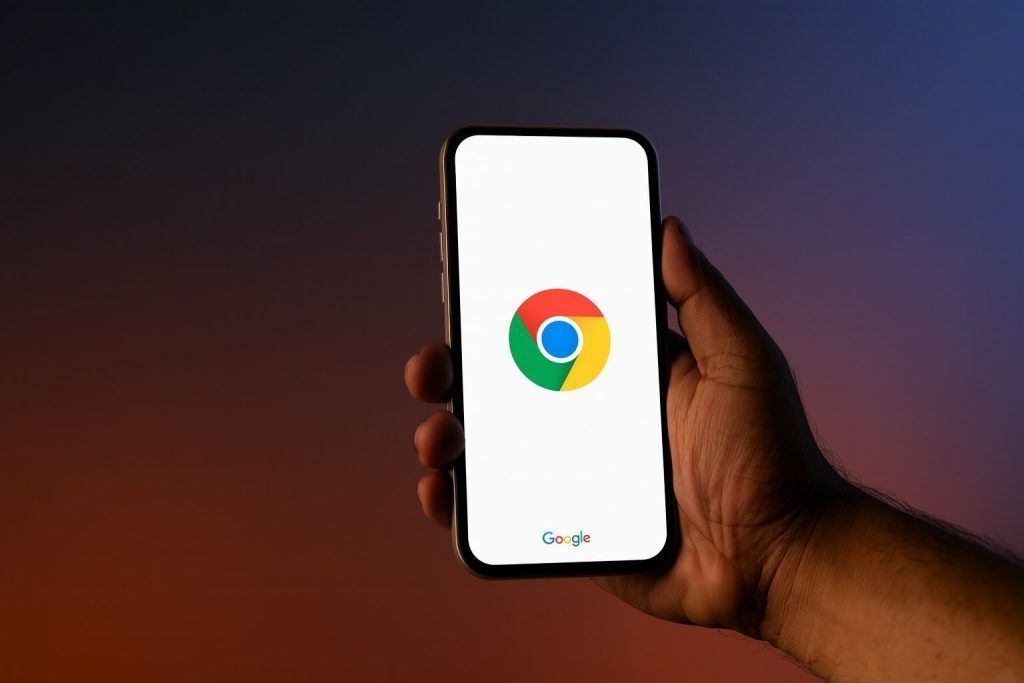- Leadership Change: T-Mobile announced that COO Srini Gopalan will take over as CEO on November 1, 2025, succeeding Mike Sievert reuters.com. Sievert, who has led T-Mobile since 2020, will become Vice Chairman to advise on long-term strategy and innovation reuters.com. This transition is part of a planned succession as the company enters a new phase of growth.
- Sievert’s Legacy: Under Sievert’s tenure, T-Mobile overtook AT&T to become the #2 U.S. wireless carrier (behind Verizon) after its merger with Sprint reuters.com. T-Mobile enjoyed record growth and outperformed rivals – its shares beat AT&T and Verizon’s during Sievert’s reign reuters.com – by leveraging aggressive “Un-carrier” moves like big 5G network investments, perks, and subscriber perks. Sievert is hailed as “the most value-creating CEO in global telecom history” by the company investing.com.
- Srini Gopalan’s Credentials: Gopalan is a telecom veteran with a global resume. He previously led Deutsche Telekom’s Germany division, where he doubled growth and expanded fiber broadband to millions of homes reuters.com. He also held senior roles at Bharti Airtel (India), Capital One, and Vodafone. Gopalan joined T-Mobile as COO in 2023 and has been steering its technology and business groups, positioning him as an insider successor familiar with T-Mobile’s “Un-carrier” culture businesswire.com businesswire.com.
- Fierce Market Competition: The CEO shake-up comes as T-Mobile faces a saturated U.S. wireless market with slowing subscriber growth and intense competition reuters.com. All major carriers are battling to win over customers who are more budget-conscious and flooded with promotions. T-Mobile leads in 5G coverage and speeds, and the leadership change aims to “defend its 5G lead” while continuing to poach customers from rivals reuters.com.
- Stock and Investor Reaction: T-Mobile’s stock dipped about 1% in early trading on the CEO news reuters.com, reflecting mild investor surprise at the timing. However, confidence in T-Mobile’s trajectory remains strong. Just days before, the company hiked its quarterly dividend by 16% to $1.02 per share – a sign of robust cash flow and shareholder returns investing.com. Analysts note T-Mobile’s stock has outperformed peers in recent years and see Gopalan’s promotion as continuity in strategy.
- Expert Endorsements: Industry experts and insiders have applauded the smooth succession. “Srini Gopalan brings a wealth of experience… I don’t expect there to be any fall-off at all in T-Mobile’s performance,” said Craig Moffett, analyst at MoffettNathanson, underscoring optimism that the Un-Carrier’s momentum will continue reuters.com. Even T-Mobile’s parent, Deutsche Telekom, voiced strong support: CEO Tim Höttges called T-Mobile “the envy of an industry” under Sievert and expressed “full confidence” in Gopalan’s ability to lead the next era businesswire.com.
A New CEO to Lead T-Mobile’s Next Chapter
T-Mobile is undergoing a major leadership transition as it enters the final quarter of 2025. The company announced that Srinivasan “Srini” Gopalan, currently its Chief Operating Officer, will become the new CEO effective November 1, 2025, taking the reins from current chief executive Mike Sievert reuters.com. Sievert isn’t leaving the scene entirely – he has been appointed to a newly created role of Vice Chairman, where he will remain on the management team to advise on strategy, innovation, and talent development reuters.com. This move marks a carefully orchestrated succession plan, with T-Mobile signaling continuity in leadership as it strives to maintain its competitive edge. Company officials emphasized that the transition was “the result of a well-established succession planning process” led by Sievert and the board investing.com, suggesting there will be no sudden shifts in T-Mobile’s game plan.
The leadership change comes at a pivotal time. T-Mobile has spent the past few years carving out a strong position in a hyper-competitive wireless industry, and the new CEO will be tasked with keeping that momentum. As the “Un-carrier”, T-Mobile prides itself on defying industry conventions – from abolishing contracts years ago to bundling perks like free streaming subscriptions – and Gopalan is expected to carry that maverick strategy forward. The company explicitly noted that he will continue T-Mobile’s “Un-carrier” strategy focused on reinventing customer experiences, gaining market share in wireless and broadband, and maintaining ‘America’s best network’ with the best value investing.com. In other words, expect business as usual – with an emphasis on aggressive growth – under new leadership.
Who Is Srini Gopalan? A Proven Telecom Veteran
Srini Gopalan may be a new name to U.S. consumers, but he’s a seasoned figure in the global telecom arena. The 54-year-old executive (originally from India) has built a diverse resume across several continents. Before joining T-Mobile US, Gopalan was CEO of Deutsche Telekom’s German division, where he earned credit for doubling the company’s growth rate and accelerating its fiber-optic broadband rollout reuters.com. Under his watch, the German business achieved record mobile market share and high customer satisfaction, showcasing his ability to execute on ambitious network and customer service improvements. He also previously held senior leadership roles at India’s giant Bharti Airtel, at Vodafone, and even outside telecom at Capital One, giving him a blend of wireless, tech, and consumer finance experience reuters.com. This international background means Gopalan is well-versed in both emerging markets and advanced telecom markets, a perspective that could prove valuable as T-Mobile navigates a maturing U.S. wireless landscape.
Gopalan joined T-Mobile US earlier in 2025 as Chief Operating Officer, recruited by Mike Sievert as part of a long-term succession plan businesswire.com. In the COO role, he has been overseeing the day-to-day operations of T-Mobile’s technology, consumer, and business units businesswire.com. Essentially, he’s been Sievert’s right-hand man in executing strategy and running the company – from expanding 5G coverage to integrating acquisitions. In fact, Gopalan was deeply involved in T-Mobile’s recent moves to broaden its network footprint, including deals to acquire additional 5G spectrum and even forays into adjacent services like home internet. “Srini has been an incredible partner in shaping the future of T-Mobile… One fact has become crystal clear: Srini is ready to lead,” Mike Sievert said of his successor, praising Gopalan’s “skills, experience and Un-carrier mindset” and his obsession with taking customer and employee experiences to the next level businesswire.com. By elevating an insider who helped craft current strategy, T-Mobile is signaling that Gopalan’s leadership will bring continuity rather than a sharp pivot.
Mike Sievert’s Tenure: From Sprint Merger to Surpassing AT&T
When Mike Sievert took over as CEO in April 2020 (succeeding the colorful former chief John Legere), he inherited T-Mobile at a critical juncture: the massive $26 billion merger with Sprint was completing, a deal that reshaped the U.S. telecom landscape and solidified T-Mobile’s place among the industry’s “Big Three” alongside Verizon and AT&T reuters.com. Sievert wasted no time capitalizing on that expanded scale. Under his leadership, T-Mobile aggressively combined networks and customer bases, which allowed it to grow faster than its rivals. In fact, T-Mobile rapidly won market share in both postpaid (monthly-billed) and prepaid segments, establishing itself as the fastest-growing major U.S. carrier in the years following the Sprint merger reuters.com.
One headline milestone: T-Mobile surged past AT&T in total wireless subscribers, becoming the nation’s second-largest carrier (Verizon remains #1) reuters.com. This was a symbolic passing of the torch in the industry, as AT&T had long held the #2 spot. The achievement was driven by a combination of factors. T-Mobile rolled out an expansive mid-band 5G network faster than competitors, leveraging spectrum gained from Sprint to offer wider 5G coverage sooner reuters.com. The carrier also kept up its “Un-carrier” ethos – slashing customer fees, offering generous promotions (like paying off competitors’ device contracts, free Netflix, and cheap family plans), and partnering with streaming services to add value for subscribers reuters.com. These moves resonated with consumers and painted T-Mobile as a customer-friendly alternative to its older, bigger rivals.
Financially, Sievert’s era has been rewarding for investors. T-Mobile’s stock price has outperformed those of AT&T and Verizon since 2020 reuters.com, reflecting the company’s superior subscriber growth and earnings trajectory. The company initiated its first-ever dividend in late 2023 and has been increasing it aggressively (a rare move in an industry known for high debt and heavy capital spending). Internally, Sievert is credited with fostering a culture of innovation and scrappiness that carried forward T-Mobile’s disruptive legacy. As he steps into the Vice Chairman role, Sievert leaves as one of the most successful CEOs in telecom – a point T-Mobile highlights by noting he delivered “record growth and unprecedented financial performance”, creating more value than any telecom CEO before him businesswire.com investing.com. His continued presence as an advisor suggests he’ll still have a hand in big-picture decisions, even as Gopalan takes over day-to-day leadership.
Market Challenges: Saturation, Competition, and the 5G Race
Srini Gopalan will assume command at a time when growth is harder to come by in the U.S. wireless market. After a decade of smartphone boom and a frenzy of switching wars, the industry’s customer base is now relatively saturated – nearly every adult (and many children) already have a mobile phone plan. “Wireless carriers have been grappling with slowing subscriber growth, rising competition and increasingly cautious consumers unwilling to pay for premium plans,” Reuters notes reuters.com. In this climate, T-Mobile’s challenge is to keep expanding its subscriber rolls and revenues despite the headwinds.
One key battleground is 5G coverage and quality. T-Mobile seized an early lead in 5G deployment by using Sprint’s mid-band spectrum, which offers a good balance of speed and range. The company now touts the largest, fastest 5G network in the country – an edge it is determined to maintain. Gopalan’s task will be to “defend [T-Mobile’s] 5G lead in a saturated U.S. wireless market” against aggressive competition reuters.com. Both Verizon and AT&T are racing to catch up on mid-band 5G coverage and are likely to step up promotions tied to new 5G devices and services. Moreover, cable companies like Comcast and Charter have become surprise competitors, offering cheaper mobile plans (as resellers of Verizon’s network) that have lured some customers away with bundle discounts. T-Mobile has responded by pushing into home internet via 5G fixed wireless broadband, essentially using its mobile network to compete with cable for home users. Gopalan’s experience in broadband (from his time expanding fiber in Europe) could be useful as T-Mobile straddles both wireless and home internet markets.
Another challenge is consumer spending patterns. With inflation and economic uncertainties, customers are more price-sensitive. They love T-Mobile’s perks and affordable plans, but every carrier is now throwing around deals – from device rebates to streaming freebies – making it harder to stand out. T-Mobile will need to continue innovating on its “Un-carrier” offerings to keep customer loyalty high. This might include new bundles, improved customer service (an area T-Mobile often touts), and technological innovation like leveraging AI for better network optimization and user support – something Gopalan has championed as COO, aiming to make T-Mobile the most “digital-first” carrier businesswire.com. In short, the new CEO inherits a company in a strong position, but he’ll have to work hard to sustain the growth trajectory in an increasingly crowded arena.
Investor Confidence: Dividend Hikes and Stock Performance
From an investor standpoint, T-Mobile’s leadership transition appears to come from a position of strength rather than crisis. The company’s stock initially dipped about 1% in pre-market trading when the CEO news broke reuters.com, indicating a modest, short-lived surprise among shareholders. Such a reaction is not unusual when a well-regarded CEO steps down. However, analysts were quick to point out that Gopalan’s elevation is a planned and orderly succession, which reassured the market. By midday, attention shifted to the fundamentals: T-Mobile’s solid track record and future prospects. In fact, just a few days earlier T-Mobile had given investors a tangible reason for optimism – the Board approved a 16% increase in the quarterly dividend, raising it to $1.02 per share investing.com. This hefty dividend hike, payable at the end of 2025, signals management’s confidence in strong cash flows and earnings growth. For context, a 16% jump in one go is well above the telecom industry norm; it underscores that T-Mobile is generating plenty of free cash (thanks to cost synergies from the Sprint merger and growing revenue) and is willing to reward shareholders.
Beyond dividends, T-Mobile has also been executing multi-billion-dollar share buybacks over the past year, another factor supporting its stock price. Its market capitalization recently hovered around $270 billion investing.com, reflecting how T-Mobile has closed the valuation gap with Verizon (and far surpassed the struggling AT&T). Wall Street’s outlook on T-Mobile remains bullish: for example, Goldman Sachs recently initiated coverage of T-Mobile with a “Buy” rating and a $286 price target, citing the carrier’s strong positioning in both mobile and broadband markets investing.com. In the big picture, T-Mobile’s shares have been a standout in the telecom sector, thanks to the company’s continued growth in subscribers and profits even as rivals face stagnation. The seamless CEO transition only reinforces the notion that T-Mobile’s strategy will stay on course, which is exactly what investors want to hear.
Industry and Expert Reactions
The announcement of Srini Gopalan as the next CEO has drawn positive reactions from industry watchers, who largely see it as a smart move that ensures continuity. Gopalan is viewed as a safe pair of hands — an internal leader who knows T-Mobile’s formula for success. “Srini Gopalan brings a wealth of experience and is a very impressive leader, and they’ve handled this transition exceptionally well. I don’t expect there to be any fall-off at all in T-Mobile’s performance,” observed Craig Moffett, a veteran telecom analyst at MoffettNathanson reuters.com. That sentiment – that T-Mobile will not miss a beat under the new chief – appears to be widely shared. Having the outgoing CEO stick around as an advisor further comforts those who might worry about any strategic zigzags.
Within the company and its parent organization, there’s also a vote of confidence. Tim Höttges, CEO of Deutsche Telekom (which owns a majority stake in T-Mobile US) and Chairman of T-Mobile’s board, offered glowing praise. He noted that T-Mobile, under Sievert’s leadership, became “the envy of an industry it has changed for the better”, delivering exceptional value for investors while rewriting the playbook on customer service businesswire.com. Höttges has worked directly with Gopalan in Europe and championed his promotion. “He has the determination, expertise, passion and empathy to be a fantastic CEO… our full confidence to Srini as he leads T-Mobile into its next era,” Höttges said, underscoring the strong support from the very top businesswire.com.
Current CEO Mike Sievert himself has been one of Gopalan’s biggest cheerleaders. Sievert hired Gopalan as COO and clearly groomed him as the heir apparent. “When I recruited Srini… I knew he had the skills, experience and Un-carrier mindset to lead our company into the future,” Sievert said, adding that after months of working closely, “one fact has become crystal clear: Srini is ready to lead” businesswire.com. Sievert’s endorsement carries weight given his success at T-Mobile. It suggests that customers, employees, and investors should expect continuity, not only in strategy but in the company’s culture of pushing boundaries.
Outside experts also point out that T-Mobile’s choice of an insider for CEO – as opposed to bringing someone from outside – likely means the company won’t waver on key initiatives. “They are doubling down on what’s worked so far – 5G network leadership, aggressive marketing, and a focus on customer retention,” noted one industry consultant in commentary on the change. The emphasis on digital transformation and data-driven decision-making, something Gopalan spearheaded as COO, is expected to intensify. In short, the consensus is that T-Mobile’s leadership handoff looks smooth and strategic, positioning the company to keep pressing its advantages.
Outlook: Continuity in Strategy Amid a New Era
As Srini Gopalan prepares to take the helm, T-Mobile finds itself at an important inflection point. The past few years have been about rapid expansion – absorbing Sprint, building out 5G, and grabbing market share from competitors. Now, with the easy wins behind it, T-Mobile’s next phase will be about sustaining growth in a tougher environment. Fortunately for Gopalan, he’s inheriting a company with significant strengths: a larger subscriber base than ever, a technological edge in network coverage, and a brand that consumers associate with value and innovation.
The incoming CEO’s stated vision aligns closely with T-Mobile’s current trajectory. Gopalan has expressed enthusiasm for “the next chapter” of the Un-carrier, vowing to continue disrupting the industry and “building on [Sievert’s] legacy of putting the customer first” businesswire.com. We can expect T-Mobile to keep rolling out initiatives aimed at eliminating customer pain points – whether that’s cheaper plans, no-expiration promotions, or novel services. At the same time, the company will likely seek new growth areas. These could include expanding its fixed wireless broadband subscriber base (offering home internet over 5G), exploring new partnerships or content offerings, and leveraging data/AI to personalize services and improve efficiency. Gopalan’s background in diverse markets might also hint at T-Mobile’s ambitions beyond traditional wireless, perhaps in fintech or other cross-industry collaborations (much like how rival AT&T ventured into media in the past, albeit with mixed results).
Crucially, T-Mobile will need to maintain its balance of growth and profitability. The generous dividend increase and ongoing share buybacks show that returning cash to shareholders is now a priority – a shift from T-Mobile’s earlier “growth at all costs” era. This suggests that Gopalan’s T-Mobile will aim to strike a sustainable growth path: investing in network and customer acquisition, but with an eye on margins and shareholder returns. It’s a natural evolution as T-Mobile matures from the scrappy underdog to an industry heavyweight.
In summary, T-Mobile’s CEO change on November 1 is a passing of the torch with the company in a position of strength. An insider with a proven track record, Srini Gopalan is set to lead with a mix of continuity and fresh perspective. He’ll face the task of keeping T-Mobile’s “Un-carrier” mojo alive in an era where growth is harder and competition is everywhere – from Verizon and AT&T to cable operators and satellite ventures. But if the endorsements from Sievert, the board, and analysts are any indication, T-Mobile is confident that this leadership shake-up will only turbocharge its ambitions rather than slow them down. Investors and customers alike will be watching closely as the Un-carrier’s next chapter unfolds under new stewardship, with big expectations that T-Mobile will continue to rewrite the telecom rulebook in the years ahead.
Sources:
- Reuters – T-Mobile names veteran Srini Gopalan as CEO to steer strategy amid fierce competition (Sep 22, 2025) reuters.com reuters.com reuters.com
- Business Wire – Srini Gopalan to Succeed Mike Sievert as T-Mobile CEO on Nov 1, 2025 (Press Release, Sep 22, 2025) businesswire.com businesswire.com
- Investing.com – T-Mobile stock falls after CEO Mike Sievert steps down (Sep 22, 2025) investing.com
- Investing.com – T-Mobile increases quarterly dividend by 16% to $1.02 per share (Sep 18, 2025) investing.com investing.com
- TmoNews – T-Mobile Announces 16% Jump in Quarterly Dividend Payments (Sep 19, 2025) tmonews.com









